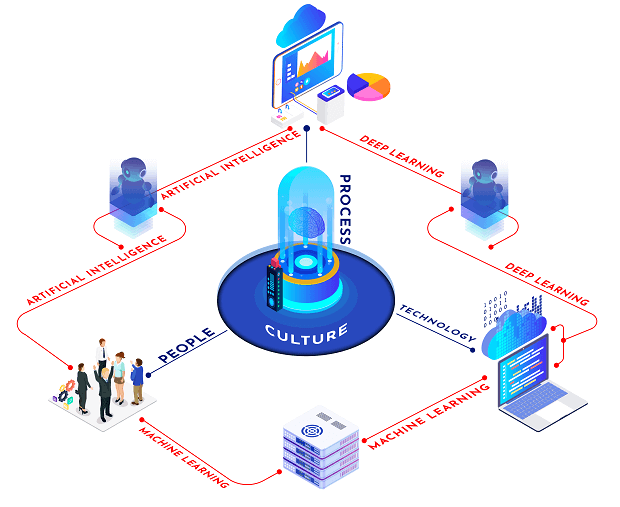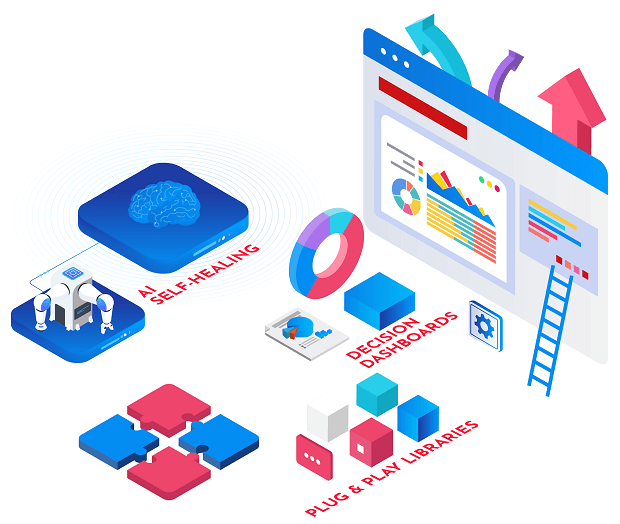Qentelli, a technology company based out of Dallas, TX accelerates digital transformation and cloud transformation journeys through implementation of DevOps, Automation, Agile transformation, AI and Deep learning. Below is our recent interview with Vishnu Nallani, VP and Head of Innovation at Qentelli:

Q: For those who haven’t heard of it, what is the best way to describe Qentelli?
A: Qentelli summarizes its offerings for clients in one line as–Enabling Business Transformation through Digital Transformation. Qentelli is providing end-to-end services in the areas of Application Development and Delivery by applying core engineering principles. Qentelli has well-known recognitions from Great Places to Work and Best in Biz. Forrester recently recognized Qentelli’s efforts at using AI and ML in augmenting the human testers.
Q: What kind of work is Qentelli doing when it comes to edge computing?
A: Qentelli is working with multiple clients on their large IoT programs. These include
1. Fleet management, load and capacity management and intelligent routing for an Energy Services company
2. Smart water and energy meters for a Property Management enterprise
3. Provide intelligent social information and personalized offers for a Commercial Shopping space giant
Edge computing is employed to combine data from multiple devices/smart phones/sensors etc., pre-process the data, encrypt + package it and handle the transmission of that information to the cloud. The Edge computing platform also receives information from the Cloud data center, sorts the information and makes some decisions based on programmed algorithms.
This allows the devices on the network to focus on User Interface, thus saving network bandwidth, device power and Cloud interfaces.
 Recommended: Vancouver SEO Agency Provides SEO Services To Help You Dominate The Competition And Generate Leads
Recommended: Vancouver SEO Agency Provides SEO Services To Help You Dominate The Competition And Generate Leads
Q: Why is edge computing so important for future use cases?
A: Edge computing future use cases are important for all the industries where businesses want to blur the lines between physical and digital world. Its digital and devices age. There’s data produced by day-to-day activities such as sensors in the car, smart homes, smart watches, social media, smart phones, apps, etc. Businesses are trying to capture and capitalize on this data by processing them and producing insights. The proliferation of cloud has speed up the process but with the amount of data produced daily, enterprises need much more efficient mode of transmitting information to a cloud or data center for processing.
For example, we are working with a client in Logistics sector. We are developing an IoT platform for fleet management where Edge Computing reduces the latency, giving super-fast results closer to the network. The IoT platform lowers the total cost of ownership with management, fuel consumption optimization, increased safety, driver performance management and vehicle maintenance.
Similarly, the future use cases around smart cities, smart health care and personalized medicines, banking and financial transactions, cybersecurity and security incidents, and defense systems require processing of information in nanoseconds or even less, making edge computing important for them.
Q: In your experience, what is the biggest challenge for adopting and scaling DevOps in the enterprise?
A: The biggest challenge will continue to be–Managing cultural shift for adopting and scaling DevOps. Enterprises have bigger teams, meaning more people to manage and manage resistance to adopt new tool chains and technologies. This makes it difficult to establish a standardize DevOps tool set as different teams want different tools based on their preferences, influences and experiences. This contributes to the vagueness among IT, security and other teams that acts as shared resources among Dev teams.
Businesses must identify change agents to sell scaling and adopting DevOps, create a knowledge base for the adoption of DevOps and use automation to speed up the CI-CD cycle.
Q: What are the key DevOps challenges that enterprises may face in the coming three years?
A: The three challenges in coming years are managing culture change, translating DevOps into business value and standardization of tools and technology landscape. Managing cultural change will be the foremost challenge. DevOps runs on Fail Fast, Fix Faster. Thus, it becomes important for teams to deliver faster incorporating new avenues of security and quality, breaking nothing. The second challenge of translating DevOps into business value can be resolved by tracking right DevOps metrics and relating it to revenues. For example, releasing an application in a new geography adds new customers to the business contributing to the revenues directly. Organizations must establish expert DevOps team for standardizing DevOps tool chain. Qentelli has helped many organizations with varied application landscape to choose the right tools for their CI-CD pipeline for better and frequent software deliveries.
 Recommended: Task Unicorn Automates Businesses To Free Owners From Work Overload
Recommended: Task Unicorn Automates Businesses To Free Owners From Work Overload
Q: What are your plans for the future?
A: Qentelli, a technology company, brings best of the breed practices from Application Engineering lifecycle to ensure higher quality applications at the velocity that businesses need. We have been in business for 4 years now, started with 3 employees we are more than 450 employees with a clear vision of: Powering Business Transformation using Digital Transformation.
We want to develop deep partnerships with enterprises to drive their digital journey and help them in creating additional revenues by improving customer experience and creating new digital customer channels. Qentelli is working with leading technologies like Artificial Intelligence, Machine Learning, Deep Learning, Blockchain, Edge Computing and Automation. These technologies offer outcome-based benefits to the clients such as an increase in revenue share, operational cost savings, automation of manual processes, and improving customer experience across all digital channels. Qentelli already has 6 patent pending Digital transformation accelerators and we are planning to develop 3 more accelerators.

